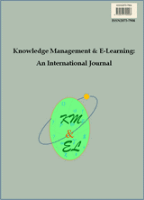
Knowledge Management & E-Learning-An International Journal
Scope & Guideline
Advancing Research for a Smarter Learning Future.
Introduction
Aims and Scopes
- Knowledge Management in Education:
The journal explores how knowledge management practices can be integrated into educational settings to enhance teaching, learning, and research outcomes. - E-Learning Technologies:
It examines the impact and effectiveness of various e-learning technologies, including online platforms, mobile applications, and learning management systems, on student engagement and learning. - Educational Research Methodologies:
The journal publishes studies utilizing diverse research methodologies, including empirical investigations, systematic reviews, and case studies, to provide evidence-based insights into educational practices. - Interdisciplinary Approaches:
It encourages interdisciplinary research that combines insights from education, technology, psychology, and management to address complex educational challenges. - Community and Collaboration in Learning:
The journal highlights the importance of community and collaborative learning environments, including the use of social media and online forums, to facilitate knowledge sharing among educators and learners.
Trending and Emerging
- Learning Analytics:
There is an increasing focus on learning analytics, which involves measuring, analyzing, and reporting data about learners and their contexts to enhance learning outcomes and inform instructional design. - Impact of COVID-19 on Education:
Research exploring the effects of the COVID-19 pandemic on teaching and learning practices, including emergency remote teaching and student experiences, has surged, reflecting the need to understand and adapt to new educational realities. - Social Media in Education:
The use of social media for educational purposes, including communication and dissemination of research, is gaining traction, highlighting its role in facilitating knowledge sharing and collaboration. - Innovation in E-Learning Technologies:
Emerging technologies such as augmented reality, virtual reality, and artificial intelligence are increasingly being explored for their potential to transform e-learning experiences. - Mental Health and Well-being in E-Learning:
There is a growing interest in the mental health impacts of e-learning, particularly concerning technostress, anxiety, and overall well-being of students in online learning environments.
Declining or Waning
- Traditional Classroom Learning:
There is a noticeable decline in papers focusing exclusively on traditional classroom settings, as the emphasis shifts towards online and blended learning environments. - Basic ICT Skills Training:
Research related to basic ICT skills training is becoming less prominent, with a growing focus on advanced applications of technology in education rather than foundational skills. - Static Learning Models:
The exploration of static or traditional learning models is waning, as there is a stronger trend towards dynamic, adaptable, and personalized learning frameworks. - Focus on Single Technology Tools:
The journal is seeing fewer studies that focus on single technology tools in isolation, as there is a trend towards examining integrated technology solutions and their impact on learning.
Similar Journals

Actualidades Pedagogicas
Exploring Innovative Pedagogies for a Brighter FutureActualidades Pedagogicas is a prestigious academic journal published by UNIV LA SALLE, dedicated to exploring the dynamic field of education and pedagogy. With its ISSN 0120-1700 and E-ISSN 2389-8755, this journal serves as a vital resource for researchers, educators, and students interested in innovative teaching practices, educational theory, and policy analysis. While the journal presently maintains a traditional access model, it aims to foster open dialogue and knowledge sharing among professionals in the educational field. Located in Cundinamarca, Bogotá, Colombia, Actualidades Pedagogicas is committed to enhancing the quality of education through rigorous research and impactful discussions. By contributing to the advancement of pedagogical frameworks and methodologies, this journal plays a crucial role in shaping the future of education.
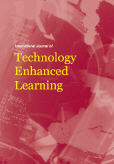
International Journal of Technology Enhanced Learning
Transforming Learning Experiences with Cutting-Edge TechnologyInternational Journal of Technology Enhanced Learning, published by INDERSCIENCE ENTERPRISES LTD, is a premier scholarly journal that comprehensively explores the intersection of technology and education, fostering innovative approaches to enhance learning processes. Established in 2008 and continuing through 2024, the journal is pivotal for researchers, educators, and technology professionals aiming to disseminate and engage with cutting-edge developments in technology-enhanced learning environments. With an admirable ranking in Scopus—placing in the 72nd percentile of Education and 49th in Computer Science Applications—the journal reflects a robust influence in the fields of Computer Science Applications and Education, as evidenced by its Q2 and Q3 quartile rankings. The journal not only provides a platform for empirical research and theoretical discourse but also emphasizes practical implementations in e-learning. Although it does not offer open access, its curated collection of articles serves as a vital resource for scholars and practitioners who are dedicated to advancing the nexus of technology and education.
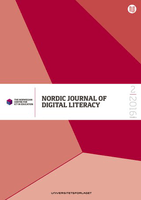
Nordic Journal of Digital Literacy
Exploring New Frontiers in E-learning and Digital CompetenceThe Nordic Journal of Digital Literacy, published by UNIVERSITETSFORLAGET AS, is a pioneering open-access journal dedicated to advancing research in the fields of Digital Literacy, Computer Science Applications, and E-learning. With an ISSN of 0809-6724 and an E-ISSN of 1891-943X, this journal highlights innovative studies that intersect education and digital technology, contributing significantly to the academic discourse in these rapidly evolving domains. The journal, based in Norway, has established itself within the academic community by achieving a commendable Q2 ranking in its respective categories for 2023. It currently ranks 518th out of 1543 in Social Sciences - Education and 461st out of 817 in Computer Science - Computer Science Applications according to Scopus metrics. By focusing on accessible research since its transition to open access in 2009, the Nordic Journal of Digital Literacy not only aims to disseminate knowledge but also empowers educators, researchers, and practitioners to integrate digital literacy into their practices, thus addressing the pressing educational demands of the digital age.

Journal of E-Learning and Knowledge Society
Navigating the Evolving Landscape of Digital EducationJournal of E-Learning and Knowledge Society is a premier academic journal dedicated to the exploration and advancement of e-learning and knowledge dissemination in contemporary society. Published by the SOC ITALIANA E-LEARNING, this journal has established itself as a vital resource for researchers and practitioners since its inception in 2006. With an open access model adopted in 2007, the journal promotes the free exchange of ideas and research findings, ensuring wide accessibility to academic contributions in this rapidly evolving field. The journal is indexed in notable databases and holds a Q3 classification in both Computer Science Applications and Education, reflecting its significant role in the advancement of educational technologies. Furthermore, its Scopus ranks highlight its relevance within the educational and computer science communities. Based in Rome, Italy, the Journal of E-Learning and Knowledge Society aims to bridge the gap between theory and practice, providing a platform for innovative research that shapes the future of digital learning environments. Whether you are a researcher, educator, or student, this journal offers valuable insights and developments in e-learning that are critical to navigating today’s knowledge society.

3C Tic
Empowering research to transform technology and communication.3C Tic is a pioneering academic journal dedicated to the fields of technology, innovation, and communication, published by AREA INNOVACION & DESARROLLO. With its commitment to open access since 2012, 3C Tic provides a platform for researchers and professionals to share cutting-edge findings and insights that drive advancements in these dynamic disciplines. The journal, identifiable by its ISSN 2254-6529, fosters a global discourse on critical issues, ranging from digital transformation to the integration of technology in education and business practices. By offering unfettered access to its content, 3C Tic not only enhances the visibility of research but also promotes collaboration and knowledge sharing among academics, practitioners, and students alike. As an important venue for scholarly content, it plays a vital role in shaping the future of technology and communication studies on a global scale.

Innovacion Educativa-Mexico
Elevating educational standards through innovative research.Innovacion Educativa-Mexico is a premier academic journal dedicated to advancing the field of educational innovation, with a strong emphasis on practices and research that enhance learning outcomes in Mexico and beyond. Published by the Instituto Politécnico Nacional (IPN), this journal plays a crucial role in disseminating original research, case studies, and theoretical discussions that address contemporary challenges in education. With its ISSN 1665-2673 and E-ISSN 2594-0392, Innovacion Educativa-Mexico provides a valuable platform for scholars, educators, and practitioners to share their insights and foster collaboration aimed at improving educational systems. While it currently operates under a traditional access model, the journal’s commitment to quality and relevance is reflected in its ongoing efforts to maintain high academic standards. Residing at the heart of Mexico City, the journal is strategically positioned to address local educational challenges while contributing to the global dialogue on innovative pedagogical practices.

EDUCATIONAL TECHNOLOGY & SOCIETY
Empowering Educators with Cutting-Edge InsightsEDUCATIONAL TECHNOLOGY & SOCIETY is a prestigious, peer-reviewed journal dedicated to advancing the fields of educational technology and its societal implications. Published by the International Forum on Educational Technology and Society at National Taiwan Normal University, this journal has established itself as a transformative platform for research and innovation in education, e-learning, and engineering. With a commendable impact factor reflected in its Q1 quartile rankings across multiple categories, including Education and Sociology, this journal is recognized for its rigorous scholarship and impactful contributions, ranking in the top percentiles within its respective fields. Since its transition to Open Access in 1998, EDUCATIONAL TECHNOLOGY & SOCIETY has provided an invaluable resource for researchers, educators, and policymakers, facilitating the dissemination of cutting-edge research that drives progress in educational practices globally. Whether you are a seasoned researcher or a dedicated student, this journal fosters a vibrant academic community committed to exploring innovative approaches in educational technology.
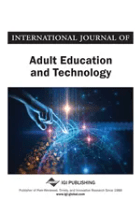
International Journal of Adult Education and Technology-IJAET
Bridging Knowledge and Technology for Adult Education.The International Journal of Adult Education and Technology (IJAET) is a premier publication dedicated to advancing the field of adult education through innovative technological approaches. Published by IGI Global, this journal serves as a comprehensive platform for researchers, practitioners, and educators interested in exploring the intersection of adult learning and modern technology. With its ISSN 2643-7996 and E-ISSN 2643-8003, IJAET aims to disseminate high-quality, peer-reviewed research that promotes best practices and fosters collaborative learning environments for adult learners. The journal contributes significantly to discussions around lifelong learning, e-learning strategies, and the role of technology in educational settings, ensuring that it remains relevant in a rapidly evolving digital landscape. With Open Access options available, IJAET is set to reach a wider audience, making significant contributions to the development of adult education practices worldwide.
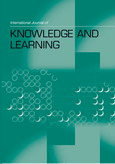
International Journal of Knowledge and Learning
Bridging theory and practice in knowledge dissemination.International Journal of Knowledge and Learning, published by INDERSCIENCE ENTERPRISES LTD, is a pivotal platform in the field of education, positioned within the Q3 category according to the 2023 quartiles. With an ISSN of 1741-1009 and E-ISSN of 1741-1017, this journal serves as a crucial resource for researchers, educators, and policy makers who are keen on advancing the dialogue surrounding knowledge dissemination and learning processes. Covering a wide array of topics within the educational sector, the journal has remained a respected outlet for scholarly work since its inception in 2005, with recent converged years extending through 2024. The journal's Scopus ranking places it securely in the 44th percentile among over 1,500 educational journals, emphasizing its significance in disseminating quality research. While it does not currently offer open access, its contribution to the academic community remains substantial, attracting submissions that foster innovative thought and empirical study in educational practices worldwide.
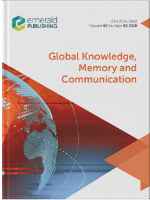
Global Knowledge Memory and Communication
Shaping the Future of Library Sciences WorldwideGlobal Knowledge Memory and Communication, published by EMERALD GROUP PUBLISHING LTD, is a leading journal in the field of Library and Information Sciences, with an impressive 2023 Q2 ranking in its category. With an ISSN of 2514-9342 and an E-ISSN of 2514-9350, this journal has been at the forefront of research since its inception in 2018 and is expected to run until 2024, showcasing significant contributions to the nexus of knowledge management and communication practices. Based in the United Kingdom, the journal's editorial scope encompasses diverse perspectives on how knowledge is created, shared, and retained in an increasingly digital world, making it a vital resource for researchers, academics, and practitioners in the social sciences. Furthermore, with its current Scopus ranking of #58 out of 280 in the library and information sciences category, which positions it in the top 79th percentile, the journal engages a global audience committed to advancing knowledge across disciplines. Though it is not an open-access journal, its rich and diverse content ensures it remains accessible to a wide readership, enabling meaningful discourse and innovation in the field.